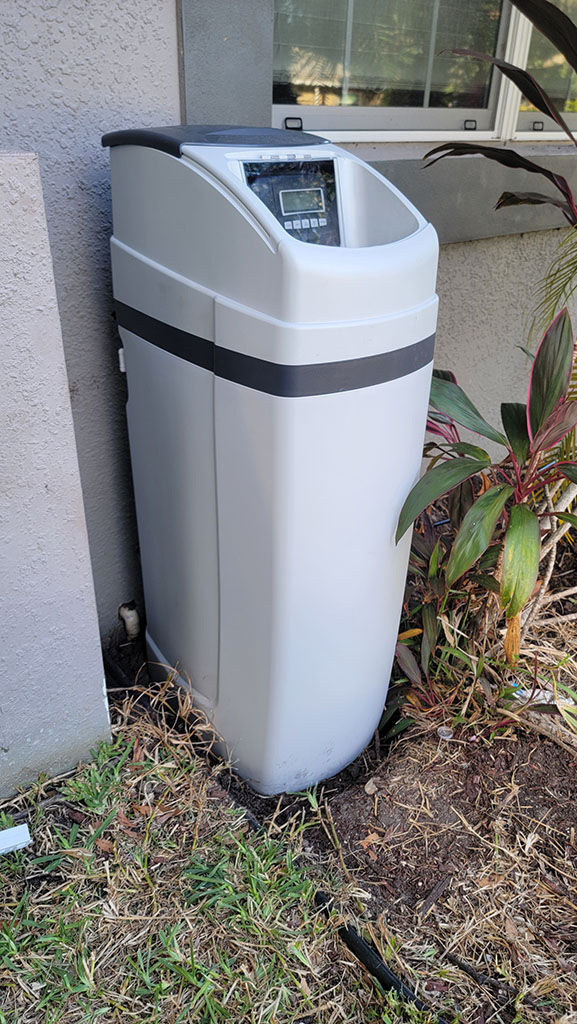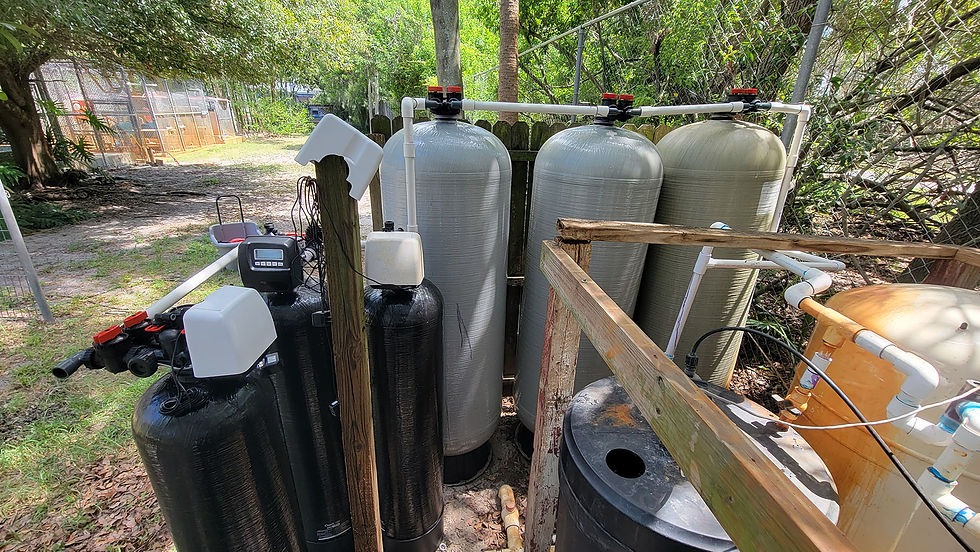The Essential Guide to Water Softener Salt: Importance, Maintenance, and Replenishment
- Eli G

- Jul 19, 2023
- 3 min read
Updated: Dec 14, 2023

Maintaining the optimal performance of your water softener is crucial for enjoying the benefits of clean, soft water in your home. One essential aspect of water softener maintenance is ensuring timely salt refilling in the brine tank. In this comprehensive guide, we will explore the importance of adding salt on time, the impact of inadequate salt levels, the benefits of regular maintenance checks, and tips for choosing the right water softener salt. Let's dive in!
Why It's Important to Add Salt to Your Water Softener on Time?
Proper salt refilling is vital to keep your water softener functioning effectively. Insufficient salt levels can lead to various issues, including persistent hard water, negative effects on personal well-being, cleaning challenges, and potential damage to water-using appliances. By adding salt on time, you can avoid these problems and ensure the continued performance of your water softener.
The Benefits of Regular Maintenance
Checks In addition to timely salt refilling, regular maintenance checks are essential for prolonging the lifespan of your water softener and maximizing its efficiency. We will explore the significance of maintenance checks, including inspecting for salt bridging and mushing, which can hinder the regeneration process. By addressing these issues promptly, you can maintain peak operating conditions for your water softener.
Choosing the Right Water Softener
Salt Selecting the appropriate type of water softener salt is crucial for optimal performance and preventing potential problems. We will discuss the various chemical compositions and forms of water-softener salt, such as common salt (sodium chloride), potassium chloride, crystals, rock salt, and high-quality salt pellets. Understanding the pros and cons of each option will help you make an informed decision based on your water softener's requirements and personal preferences.
Handling Salt Bridging and Mushing Salt
Bridging and mushing are common issues that can occur in the brine tank of water softeners. We will provide insights into identifying and resolving these problems, which can impede proper salt dissolution and regeneration. By addressing salt bridging and mushing, you can ensure consistent and effective performance from your water softener.
Knowing When to Replace Your Water Softener
Despite regular maintenance, there may come a time when your water softener needs replacement. We will discuss the signs indicating the need for a new water softener, such as increasing frequency of salt refills despite stable usage patterns. Upgrading to a newer model with advanced features like smart usage monitoring, demand-initiated regeneration, remote diagnostics, and salt delivery can enhance your water-softening experience.
Conclusion
Maintaining the performance of your water softener through timely salt refilling and regular maintenance checks is crucial for enjoying clean, soft water in your home. By understanding the importance of salt replenishment, choosing the right water softener salt, and addressing common issues like salt bridging and mushing, you can ensure the longevity and effectiveness of your water-softening system. Remember to monitor salt levels, follow recommended maintenance practices, and consider upgrading when necessary to optimize your water-softening experience.
With this comprehensive guide, you have the knowledge and insights to effectively manage your water softener's salt replenishment and maintenance. Experience the advantages of soft water and ensure the optimal performance of your water softener system in your home with Aquawise's expertise and commitment to water quality.
FAQS: Essential Guide to Water Softener Salt
Why is it crucial to add salt to your water softener on time?
Timely salt refilling is essential to prevent persistent hard water, maintain water softener effectiveness, avoid cleaning challenges, and prevent potential damage to water-using appliances.
What are the benefits of regular maintenance checks for your water softener?
Regular maintenance checks extend the lifespan of your water softener, maximize efficiency, and address issues like salt bridging and mushing that can hinder the regeneration process.
How do you choose the right water softener salt?
Selecting the appropriate water softener salt involves understanding the chemical compositions and forms, such as sodium chloride, potassium chloride, crystals, rock salt, and high-quality salt pellets, to meet your water softener's requirements and personal preferences.
How do you handle salt bridging and mushing issues in your water softener?
Identify and resolve common issues like salt bridging and mushing in the brine tank to ensure consistent and effective performance by promoting proper salt dissolution and regeneration.
When should you consider replacing your water softener?
Consider replacing your water softener when signs like increased frequency of salt refills despite stable usage patterns arise. Upgrading to newer models with features like smart usage monitoring, demand-initiated regeneration, remote diagnostics, and salt delivery can enhance the water-softening experience.
Related Articles:




Comments